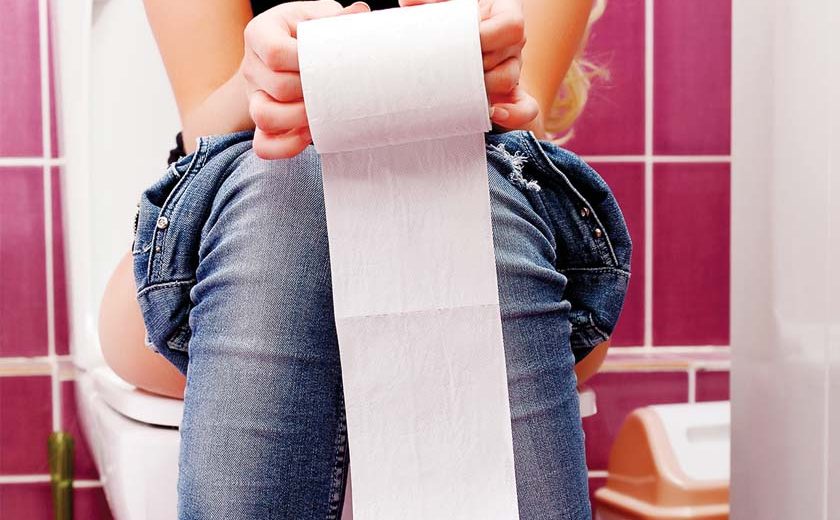What causes Hemorrhoids?
Hemorrhoids or piles are network of blood vessels in the walls that surround the anus. They work with anal sphincter as cushions that help with stool control or continence. Whenever there is increase in abdominal pressure, the cushion enlarges and maintains anal closure. They also help us to differentiate between stools and flatus. However, recurrent or chronic increase in the vessels pressure and anal sphincter diseases can loosen and damage the Hemorrhoidsal cushion. The increase in pressure will swell the vessels as they do not have muscular coat to oppose the pressure and will excessively enlarged. When the structures and bands that hold the vessels are loose, the Hemorrhoids structures may slide downwards. These cause enlarged Hemorrhoids and trauma will bleed the Hemorrhoids.

Dr Khairussaleh Bin Jalaludin
General Surgeon
MBChB (Ire), Dip. IRK (IIUM), M. Surgery (UKM)
Pantai Hospital Ayer Keroh
The exact factor is unknown but probably multifactorial. Genetic and aging may have contributing effect. Factors that increase the likelihood of Hemorrhoids include;
- Excessive straining due to constipation or diarrhea.
- Sedentary lifestyles,
- Prolonged sitting especially in the toilet,
- Low fiber diet,
- Pregnancy,
- Obesity,
- Diseases such as liver disease, anal injuries and nerve injuries
Can I prevent the Hemorrhoids from coming back?
The risk of Hemorrhoids and recurrences can be decreased by lifestyle modification. Eat high fiber diet and staying well hydrated to prevent constipation, getting regular exercise, and trying to have a bowel movement as soon as possible after the urge arise, spending less time attempting to defecate, avoiding reading while on the toilet, and losing weight for overweight persons and avoiding heavy lifting are also recommended.
The good news is that most people with Hemorrhoids have an excellent prognosis. While symptoms of bleeding or discomfort may flare up from time to time, they don’t last long and can be relieved with symptomatic care. Those that treated surgically, the recurrences are small.
Does banding of Hemorrhoids help
When medical treatment fails, definitive treatment is advised which include injection sclerotherapy, rubber band ligation, cryosurgery, infrared coagulation, ultrasonic Doppler-guided transanal Hemorrhoidsal ligation, laser ablation, transanal stapler and open surgery.
Ligation of the Hemorrhoids has been performed since Hippocrates day. Nowadays rubber band ligation is the most common procedure performed in the clinics. Rubber band ligation of Hemorrhoids is performed by placing a couple of tight rubber bands around the base of the Hemorrhoids, stopping the blood supply. The Hemorrhoids will shrink and the dead tissue will fall off in few days together with bowel motion.The wound will heal in one or two weeks. The procedure may be repeated as necessary. Hemorrhoids banding is helpful for stage 1, 2 and 3. Banding may be considered for anaemic stage 4 patients who are unfit for surgery. Its success rate is between 60-80%. Studies show that Hemorrhoids ligation has a limited morbidity, good results, long-term effectiveness, and good patient acceptance. It has been found to be safe even for patients with cirrhosis and portal hypertension and for patients on anticoagulation therapy.
Tears in the anus and anal fissure
Anal fissure is caused by tears in the anus. The anus is the narrowest end of the large bowel. It has circular anal sphincter muscles around it to help controlling bowel motions. The inner lining is prone to tear due to trauma. The most common cause is hard stool or constipation. When the hard stool stretches and presses against the wall, it cut and tears the skin. Usually the cut heals in few weeks but it may persist and extends deeper due to repeat injury. The sphincter muscles that surround the anus may go into spasm and cause longer lasting pain. The spasm also pulls the edges of the wound apart, which impairs healing of the wound and leads to further tearing with the passage of subsequent bowel movements. This cycle leads to the development of a chronic anal fissure.
The common symptoms are pain and bleeding. Pain occurs during the passage of a hard bowel movement, and continues afterward. Even pressure on the back such as sitting can be quite painful. Bleeding is usually not as much as in Hemorrhoids. Blood may drip a bit in the toilet bowl or noted on wiping or in diaper. Itching or burning sensation around the anus is the common symptoms as well. The initial treatment is for pain relief which include analgesia, sitzbath or topical analgesic. For reducing trauma to the anus,the treatment basics include drinking more fluid, eating a high fiber diet and may requirestool softeners, fiber supplements or laxatives. Topical vasodilators may be used to relax the anal sphincter muscle. Surgery is considered only after diet and medications have failed.
When should one get medical advice?
Determination of the diagnosis is the most crucial part for proper treatment and management. Medical advice should be sought when one gets the symptoms of Hemorrhoids. Bleeding is never normal and although Hemorrhoids are the most common cause to have blood in the stool, other causes of rectal bleeding should be ruled out. Cancers, anal fissure, rectal ulcers and inflammatory bowel can present with rectal bleeding.If there is concurrent fissure and Hemorrhoids, usually the fissure should be treated first.
For those who are known Hemorrhoids, continuous bleeding will lead to significant blood loss which may cause lightheadedness and weakness. Blood pressure will drop and they may need blood transfusion. This is important especially for those taking anticoagulation or blood thinning medication such as warfarin, aspirin or clopidogrel.
If there is pain in the anus or abdomen, medical care should be sought immediately. Usually Hemorrhoids won’t cause significant pain but thrombosed external Hemorrhoids may cause significant pain and may be necessary to remove the clot. Abdominal pain may be a sign for other sinister problems. It can be caused by cancer, colitis, infection or ulcer.
Stage 3 Hemorrhoids require manual reduction of the protruding mass. Repeated cycles will make it swollen and progress to stage 4 when it can no longer be pushed back inside. These protruding Hemorrhoids that cannot be pushed back through the anus require medical care. It requires medication and may need surgery.


